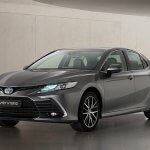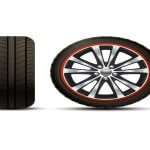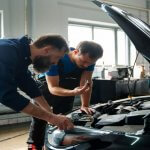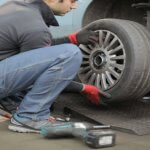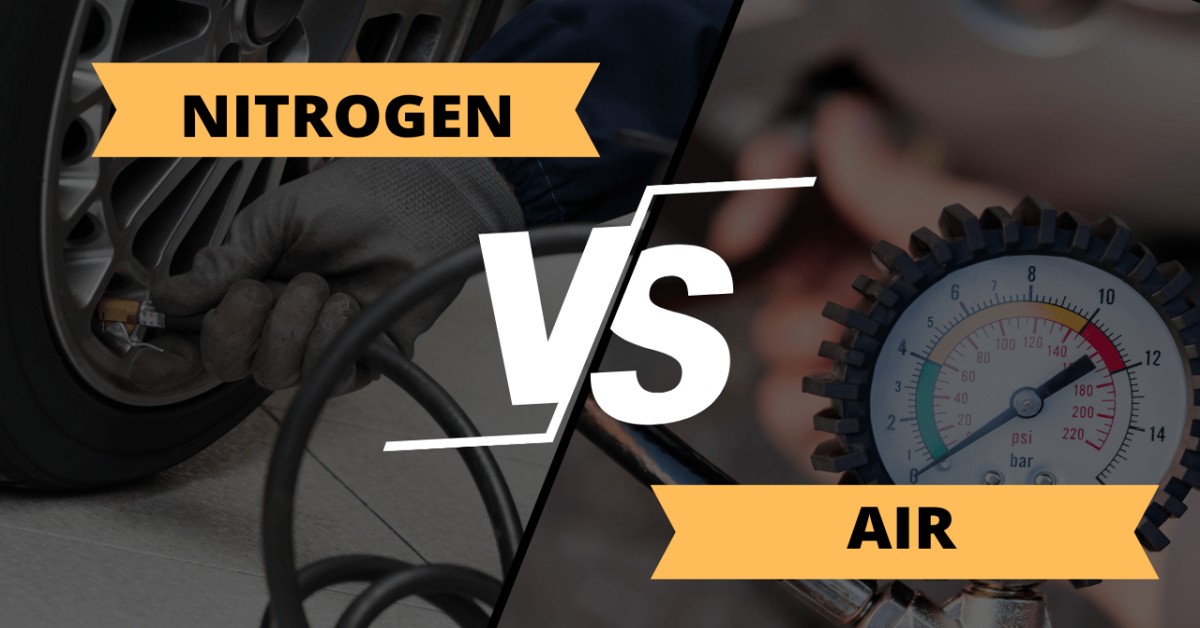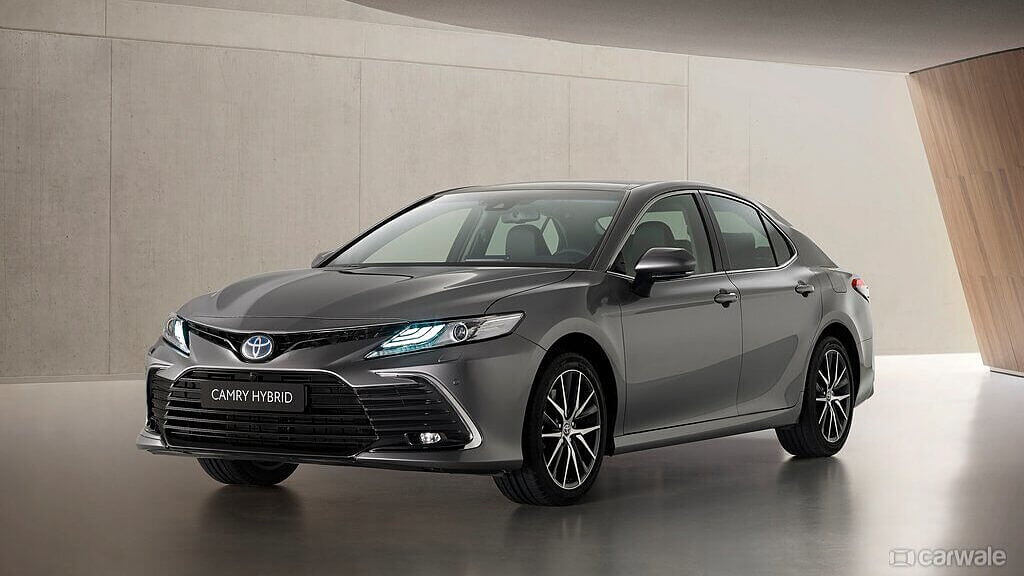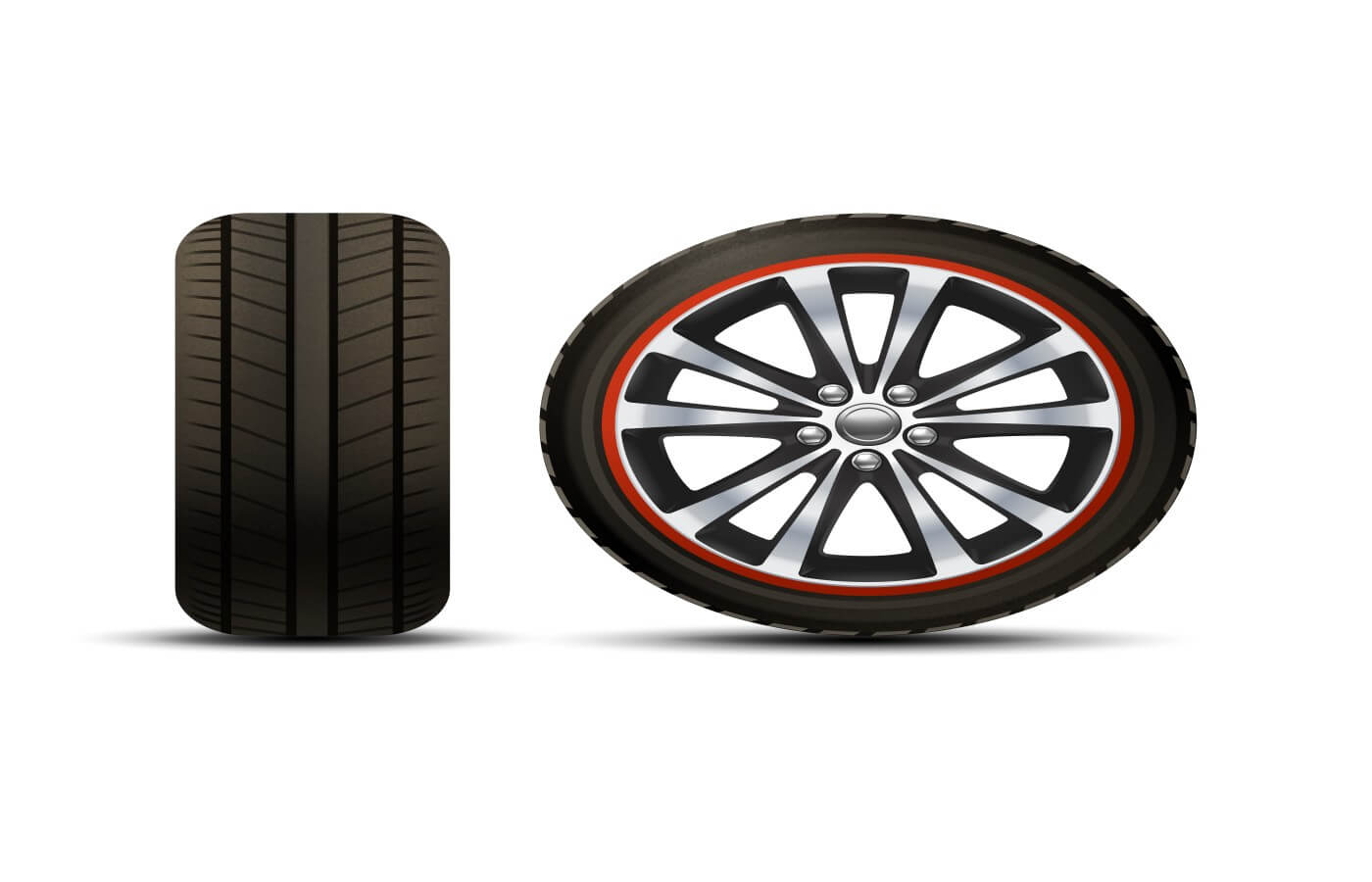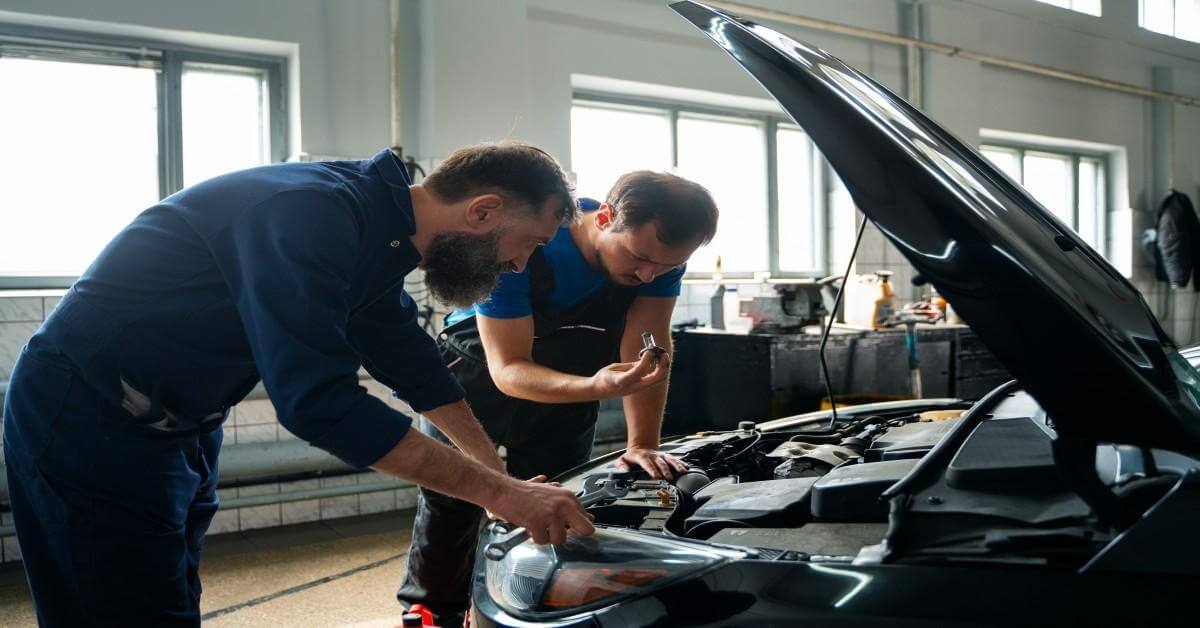Tires are so built that they can provide miles of good service if one can maintain them properly. The most important element to be considered when it comes to tire maintenance is maintaining proper tire inflation pressure. Proper inflation pressure causes evenness in tire wearing which leads to prolonging the life of tires and improvement in fuel economy of your vehicle. Properly inflated tires can provide you with proper handling of your car, a comfortable ride, and dependable traction.
Table of Contents
Some important points to remember about tire inflation pressure
- The pressure of one’s vehicle is set according to the owner’s manual provided to the owner by the manufacturer.
- Remember to check your tire pressure with climatic changes ad the tire pressure tends to differ according to the temperature difference of the surroundings. The pressure drops if the temperature is cold and rises as the temperature gets warmer.
- Use a good quality gauge to measure your vehicle’s tire pressure.
The harm caused to your tires due to overinflation or under-inflation
- Overinflation: Overinflation means having a higher pressure than the recommended pressure. This could lead to uneven wear (mainly more wear at the center of the tire). Overinflation makes the tire stiff and rigid, reducing the tire contact surface, and leading to a rough ride.
- Underinflation: It is the case where the tire pressure is lower than the recommended one. This leads to more contact areas than required, leading to premature wear of your tires.
Now we understand how much tire inflation pressure is important for the long life of your tires. The tire pressure is also dependent on the type of media filled in it. The two major options famous in the current market is Nitrogen and compressed air. Let’s have closer look at each of these options.
Nitrogen in Tyres
Now the question is that despite the presence of good old air what benefits does nitrogen offer that we are discussing which is better amongst the two. The chemistry of nitrogen is such that it has a larger molecular size as compared to standard air. There are small pores present in the rubber tires at the microscopic level.
The presence of these pores causes any air inside the tires to seep out of the tires. Now the larger molecular of nitrogen helps it to seep out at a lower rate as compared to air. So the presence of nitrogen helps the tires to maintain a stable pressure for a longer period of time. And stable pressure is a very essential factor when it comes to the life of tires. Also, the pressure of a nitrogen-filled tire is known to have lower fluctuations when the variation of temperature is compared to a tire filled with normal air. Because of its inert properties, it is often used in a variety of specialized fields like mining, aircraft, race cars, commercial or heavy uses, etc.
Also, the presence of normal air in tires is known to convert into a water vapor or liquid as the temperature swings and gives rise to humidity. Humidity is known as a damaging factor for tires. Tires filled with nitrogen don’t encounter this problem.
Standard air in tires
Now the standard air is been successfully used by drivers all over the world for a very long time. So, obviously, there is nothing wrong is using air in your tires. Also, it must be kept in mind that air is more easily available to refill as compared to nitrogen and is often free of coat. Remember if your going a long way in your vehicle then obviously standard air is the best choice to fill in your tires.
As while traveling air is easy to find at any palace whether the main city or countryside whenever the refilling is required. Nitrogen on the other hand is more difficult to find. There are only a few garages or shops which provide such service. Although the pressure drop for a tire filled with nitrogen is at a lower rate as compared to a tire filled with air, it won’t matter if are going a long way and encounter a situation where you require an emergency refilling of your tires.
Nitrogen vs Air in Tyres
Now let us have a clear comparison of nitrogen versus air on different parameters one by one. The parameter taken into account are
- Cost and Convenience
- Tire pressure
- Fuel economy
- Damage to tire or wheel
Cost and Convenience
It was obviously clear that air is universally available gas. Any garage or service shop will check the pressure of your tires and fill them up to the required pressure for a few rupees or even free of cost. But the case is not the same when we talk about nitrogen. The infrastructure for nitrogen is not so developed that it is available at every car service shop.
Also, the shop which offers the service of nitrogen filling offers it at a very high cost. Filling each tire with nitrogen can cost up to $5 to $7 and a complete nitrogen upgrade is even costlier. The reason behind complete nitrogen upgrades cost is that it requires several cycles of filling and deflation to completely flush out all the air from the tires.
So as far as the economic comparison is concerned the complete winner of the battle is air. Air is much more economical if we are talking about regular cars.
Tire Pressure
As discussed earlier that the molecule size of nitrogen is more than that of standard air. This helps nitrogen to seep out of the tire at a lower rate when compared to oxygen. Also, it is observed that variation in pressure due to temperature change is slighter when compared to tires filled with air.
So, nitrogen as it can be seen is the clear winner when it comes to maintaining the required tire pressure. But, it should be noted that the ability of nitrogen to maintain tire pressure does not make it more cost-effective when compared to standard air.
Fuel economy
A study found that a drop in tire pressure results in an increase in rolling resistance between road and tires. This results in a decrease in the gas mileage of your vehicle. It is found that using nitrogen in your tires instead of standard sir does not decrease rolling resistance. So, the battle for fuel economy is a clear tie between air and nitrogen.
Checking your tire pressure once a month and maintaining it at the suggested level may help to improve your fuel economy. As the decrease in tire pressure a minimal level will result in an increase in rolling resistance which in turn will result in the consumption of more fuel.
Damage to tire or wheel
If we take a closer look at the chemical composition of the air, we can see that it contains about 78% nitrogen and 21% oxygen, and the rest is traces of other gases like carbon dioxide. Now, oxygen can retain moisture in the tires of our vehicles and can oxidize the internal casing of your tire.
This could result in early aging of your tires. Nitrogen on other hand is an inert gas and a dry gas does not support moisture. Using 95-98% of pure nitrogen for your tires is known to prevent your tires from early aging.
FAQs
Can I mix nitrogen and standard air in tires?
Consider a situation where you filled your tires with nitrogen and went for a trip. Suddenly you wanted to refill your tires but there is no service available nearby to refill nitrogen in tries. So, don’t worry it is absolutely okay to fill the air in the tires where originally nitrogen is there. You should fill your tires with air instead of riding a vehicle with underinflated tires. Mixing both will not trigger any chemical reaction which is harmful to your tires.
What is the standard cost for nitrogen filling?
In the end, whether to use nitrogen in your tires or not will always come down to cost. The cost for filling nitrogen in your tires is about Rs. 40 – Rs. 50 per tire. So on average per filling will cost you around Rs. 250 taking spare into account too.

